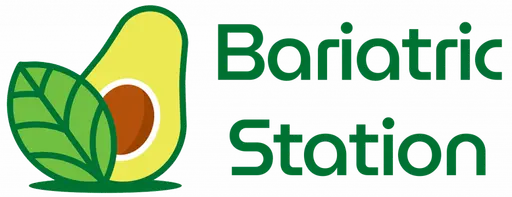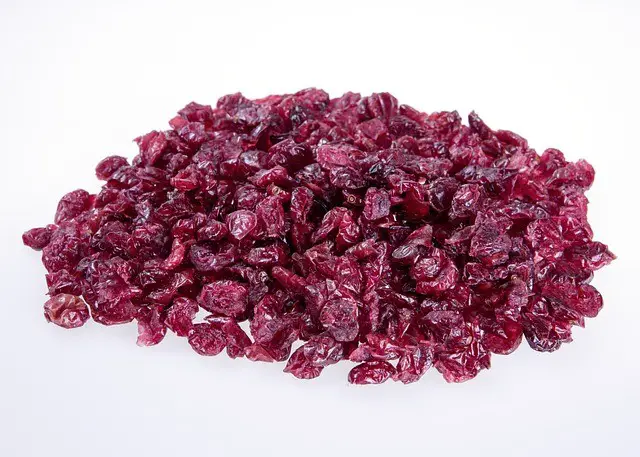The ketogenic diet, a high-fat, low-carb diet that has gained popularity in recent years, has been shown to have several potential health benefits. The breakdown of macronutrients in this diet typically looks like 55-60% fat, 30-35% protein, and 5-10% carbohydrates. For example, in a daily intake of 2000 calories, the carbohydrate intake would be limited to 20-50 grams per day
But as with any diet, it’s important to carefully consider the types of foods that are included to ensure that it is well-balanced and sustainable.
Is coconut Keto friendly? This is one of the most common questions people ask. Another common question is whether coconut oil or coconut milk is allowed on the Keto diet or what about shredded coconut? In this article, we’ll clear up the confusion and help you make the best choices for your Keto diet.
Is Coconut Keto Friendly?
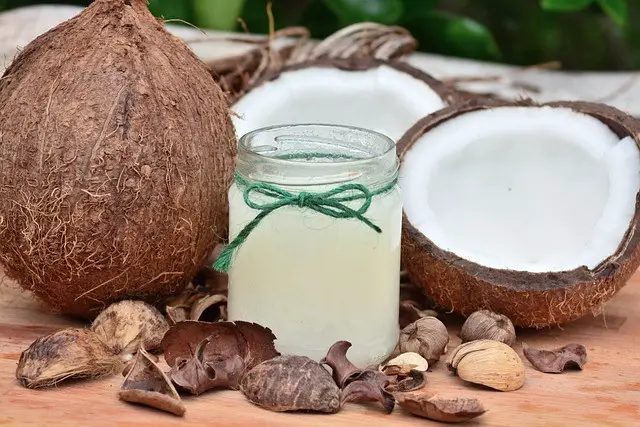
Coconut is a source of Healthy Fat and Medium Chain Triglycerides (MCTs) which the body uses for energy rather than storing as fat.
It is often believed that the high amount of saturated fat in coconut, around 92%, can negatively impact health and increase the risk of ischemic heart disease. However, according to a 2009 research study the majority of these saturated fats are medium-chain fatty acids, which are metabolized differently than the long-chain triglycerides found in animal products. Unlike long-chain fatty acids, medium-chain fatty acids do not go through degradation and re-esterification processes and are instead immediately used by the body for energy. This unique characteristic of coconut fats sets them apart from other sources of saturated fat.
This means that coconut products are Keto-friendly. In fact, they’re one of the best sources of healthy fat on the Keto diet. Coconut oil, for example, is high in lauric acid, which has antimicrobial properties.
Coconut milk is a great way to get your daily intake of calcium and magnesium, both of which are important on the Keto diet. It’s also a good source of potassium, an electrolyte that’s essential on the Keto diet. And coconut flour makes a great replacement for white flour in Keto baking recipes.
So yes, coconut is definitely Keto-friendly!
A Closer Look at the Different Types of Coconut Products
Coconut products are all the rage on the Keto diet. But just what are they, and more importantly, are they Keto-friendly?
Coconut Oil


Coconut oil is a type of oil that is extracted from the meat of mature coconuts. It is a popular cooking oil, especially in tropical countries where coconuts are widely available. Coconut oil is high in saturated fat with the majority made up of medium-chain fatty acids, which are metabolized differently by the body than other types of fatty acids. Because of this, coconut oil is thought to have several potential health benefits, although more research is needed to confirm these effects.
In terms of its nutritional profile, coconut oil is a good source of healthy fats and contains small amounts of vitamins and minerals. One tablespoon (11.6 grams) of coconut oil contains 103.5 calories, zero grams of carbohydrates, 11.5 grams of fat, and no protein according to USDA
Because coconut oil is high in saturated fat and contains medium-chain fatty acids, which are easily metabolized by the body, it can be a good source of fuel on a ketogenic diet.
A 2020 study found that compared to animal oils, coconut oil had a more favorable lipid profile and significantly increased levels of HDL cholesterol, indicating its potential to improve cardiovascular health. In comparison to other plant oils, coconut oil demonstrated these beneficial effects on lipid profiles with the virgin coconut oil being the best version.
Coconut milk

Fresh Coconut milk is a liquid that is made from the grated flesh of mature coconuts. It is a popular ingredient in many tropical and Asian cuisines and is used in a variety of dishes, including soups, curries, and desserts. Coconut milk has a rich, creamy texture and a mild, slightly sweet flavor.
In terms of its nutritional profile, coconut milk is a good source of healthy fats and contains small amounts of vitamins and minerals, including iron, magnesium, and potassium. It is relatively low in calories, with about 552 calories per 240g cup. However, it is also high in saturated fat, with about 51g of the fat in coconut milk being saturated, net carbs are 13 g and protein 5 g according to USDA database.
There are several different types of coconut milk, including:
Canned Coconut Milk
This type of coconut milk sold in a can and is typically made from coconut meat , water, and a small amount of stabilizers to help prevent separation.
Canned coconut milk is available in a range of varieties, including sweetened coconut milk, unsweetened coconut milk, light coconut milk, and full-fat. For those following a ketogenic diet, full-fat coconut milk is recommended for Keto-friendly dishes.
Coconut milk beverages
Coconut milk beverages, also known as coconut milk drinks or coconut milk alternatives are non-dairy milk alternatives that are made from coconut milk and water. They are typically lower in fat and calories than traditional coconut milk and are often fortified with vitamins and minerals
Coconut milk beverages can be a suitable option for those following a ketogenic diet, as they are low in carbs and contain small amounts of protein. However, it is important to read labels carefully and choose a product that fits your dietary needs and preferences.
Some coconut milk beverages may contain added sugars or other ingredients that may not be suitable for a ketogenic diet.
Still, as with any type of food, it’s important to take into account the serving size and ingredients used when determining its carbohydrate count. For example, a one-cup serving of coconut milk derived from coconuts and water may have fewer carbs than one made with added starches or sweeteners
Can You Eat Coconut Meat on Keto?
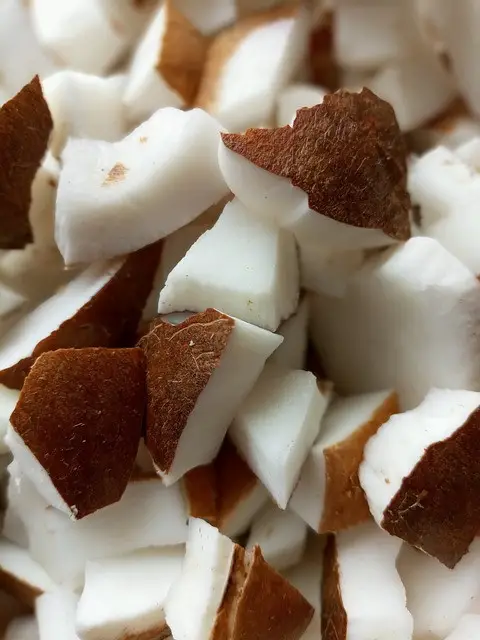
If you’re on the Keto diet, you may be wondering if you can eat coconut meat. Let’s break it down:
Coconut meat can be eaten on a ketogenic diet. Coconut meat is the white flesh of a coconut, and it is a good source of healthy fats, fiber, and nutrients. It is low in carbs and has a moderate amount of protein, making it a suitable option for those following a ketogenic diet
Coconut meat can be eaten on its own as a snack or used in a variety of dishes, including smoothies, curries, and baked goods. It is important to be mindful of portion sizes when eating coconut meat on a ketogenic diet, as it is high in calories and fat. It is also important to remember that a ketogenic diet should be balanced and include a variety of nutrient-dense foods, not just coconut meat.
Shaved or Shredded Coconut

Shaved or shredded coconut meat can add a delightful texture to dishes. These coconut flakes are often used in ketogenic diet-friendly desserts and provide a satisfying, coconut flavor. As with other coconut products, you can find both sweetened and unsweetened versions of shaved or shredded coconut.
When following a Keto diet, it is recommended to opt for the unsweetened variety to avoid consuming added sugars.
Coconut Flour
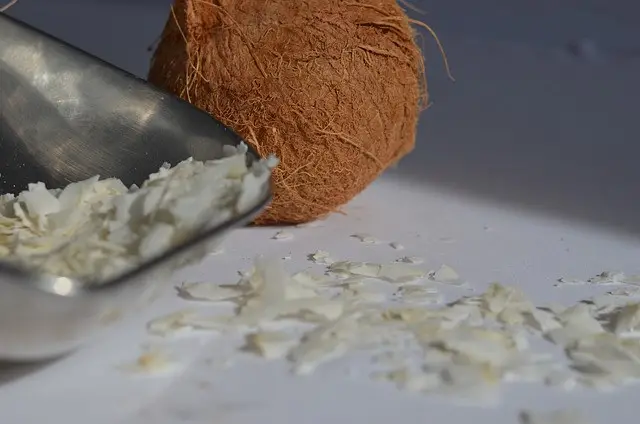
Coconut flour is a type of flour made from ground, dried coconut meat. It is a good source of fiber, protein, and healthy fats, and is naturally gluten-free. Because it is high in fiber and low in digestible carbs, it may be suitable for use in a ketogenic diet in moderation.
However, it’s important to note that coconut flour is highly absorbent, so it may require adjustments to traditional recipes when used as a substitute for wheat flour. You may need to use more liquid and fewer eggs when baking with coconut flour, and you may need to use more coconut flour in comparison to wheat flour to achieve the desired texture.
Using Coconut Cream for the Keto Diet
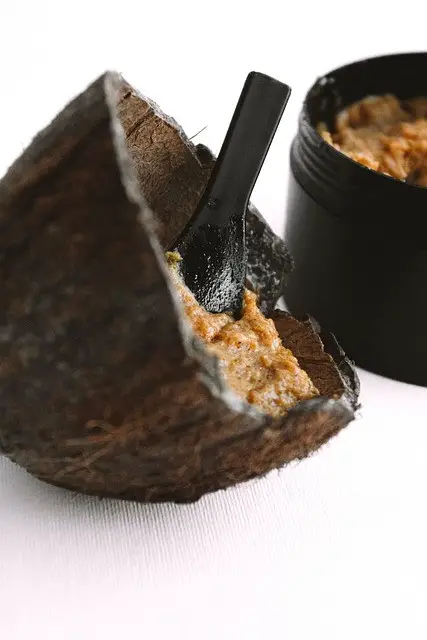
Coconut cream can be used as part of a ketogenic diet. Coconut cream is made from the thick, creamy, and high-fat part of coconut milk. It is a good source of healthy fats and contains small amounts of vitamins and minerals, including iron, magnesium, and potassium.
Coconut cream can be used in a variety of dishes, including soups, curries, sauces, and desserts. It is a good option for those following a ketogenic diet because it is high in fat and low in carbs. However, it is important to be mindful of portion sizes when using coconut cream, as it is high in calories and fat
If you’re on the Keto diet, you might be interested in coconut cream. First of all, what is it? Coconut cream is a thick, creamy liquid made from coconut milk and coconut oil. It’s often used in baking and cooking as a dairy-free alternative to milk or cream.
The great thing about this creamy option is that it’s low in carbs and high in fats—making it an ideal choice for the Keto diet. Plus, it has added health benefits like helping to boost immunity, improving digestion and aiding weight loss.
Another plus is that it’s full of healthy fats like medium-chain triglycerides (MCTs), which help to increase energy levels. And when compared with other dairy-free milks, coconut cream contains the highest amount of healthy fats.
So if you’re looking for a delicious and creamy way to meet your Keto dietary needs, look no further than coconut cream!
Benefits of Coconut for the Keto Diet
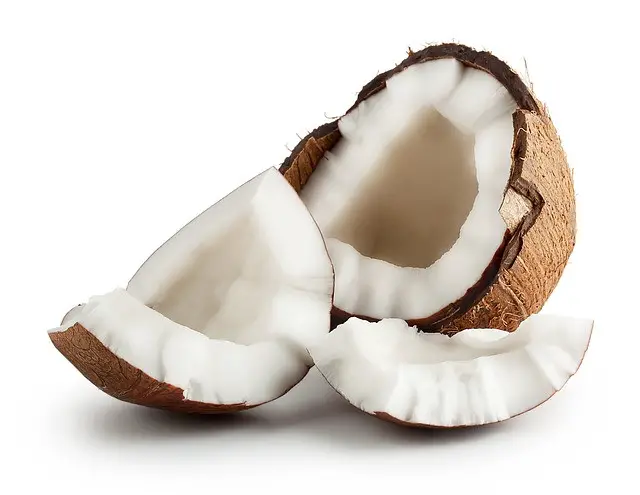
Coconut is Keto-friendly! Not only is coconut high in healthy saturated fats, but it’s also a great source of fiber, vitamins, and minerals—making it the perfect food for people on the Keto diet.
Some of the key benefits of coconut for Keto include:
• Coconut is a good source of healthy saturated fats, which are essential for Keto.
A 2016 study found that MCTs in coconut helped obese individuals lose weight when eaten instead of eating long-chain saturated fats found in animal foods.
• Coconut may help improve your blood sugar
Coconuts are a low-carbohydrate, high-fiber, and high-fat food that may be helpful in maintaining healthy blood sugar levels. A 2021 study of 48 individuals with metabolic syndrome found that substituting other fats in their diet with virgin coconut oil for 4 weeks resulted in improved triglyceride levels and reduced fasting blood sugar compared to a control group
• Coconut is a good source of vitamins and minerals.
Coconuts are a notable source of manganese, which is critical for maintaining healthy bones and aiding in the metabolism of carbohydrates, proteins, and cholesterol. In addition to manganese, coconuts are also abundant in copper and iron, which help to produce red blood cells, and selenium, a potent antioxidant that shields cells from damage
• Coconut has anti-inflammatory and antioxidant properties, which can help protect your health while on the Keto diet.
According to a 2015 study, the flesh of coconuts contains various phenolic compounds such as p-coumaric acid, salicylic acid, caffeic acid, and gallic acid which can neutralize harmful free radicals that can contribute to the development of chronic conditions. These compounds work to combat the negative effects of free radicals on the body.”
• Coconut is a delicious and versatile ingredient that can be used in many different recipes on the Keto diet.
Potential Cautionary Notes on Coconut

There are a few cautionary notes to consider when it comes to coconut and the ketogenic diet
Some people may be allergic to coconut. If you have a known allergy to coconut or have experienced an allergic reaction to coconut in the past, it’s important to avoid consuming coconut products.
It’s also important to note that not all coconut products are created equal. Some coconut products may be highly processed and contain added sugars or other ingredients that may not be consistent with a ketogenic diet. It’s important to read labels and choose minimally processed coconut products whenever possible.
Ways to Incorporate Coconut Into a Keto Diet
Coconut can be eaten in several ways and can provide a valuable source of healthy fats, vitamins and minerals. Here are a few ideas for incorporating coconut into your Keto diet.
Try coconut yogurt

Coconut yogurt is a creamy, dairy-free alternative to traditional yogurt that can be enjoyed as a snack or used as a base for dips and dressings
Snack on coconut flakes
Unsweetened coconut flakes make a tasty, low-carb snack on their own, or they can be added to trail mix or used as a topping for oatmeal or yogurt.
Coconut Flour Pancakes

These pancakes are made with coconut flour and are a low-carb, grain-free alternative to traditional pancakes
Coconut Curry Chicken
This flavorful curry is made with coconut milk, coconut oil, and a variety of spices and is a delicious way to incorporate coconut into a ketogenic diet.
Coconut Cream Pie
This creamy pie is made with coconut cream and is a delicious, low-carb dessert option for those following a ketogenic diet.
Coconut Shrimp
These crispy shrimp are coated in coconut and are a delicious, low-carb option for a ketogenic diet.
Coconut Flour Biscuits
These biscuits are made with coconut flour and are a low-carb, grain-free alternative to traditional biscuits.
Coconut Almond Fat Bombs
These small treats are made with coconut oil, coconut butter, and almond butter and are a delicious, high-fat snack option for a ketogenic diet.
Finding Healthy & Delicious Coconut Products for a Keto Lifestyle
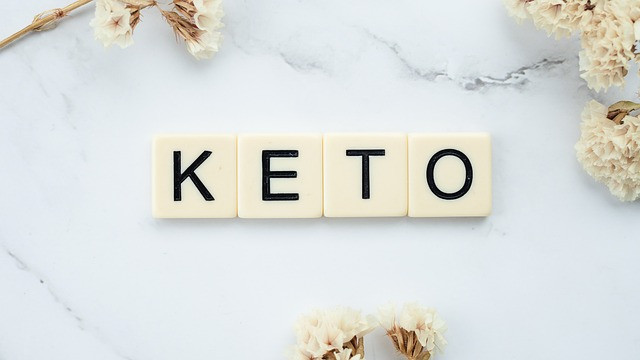
So, now that you know the answer to the question is coconut Keto friendly, let’s talk about finding healthy and delicious coconut products for a Keto lifestyle.
Coconut has many forms and can be used in a lot of different ways: coconut milk, coconut water, coconut flour, shredded coconut, coconut oil, and more. All of these varieties can become part of your Keto diet if you pay attention to their nutritional content.
For the most part, you want to stick to unsweetened versions of all these products. But, if you’re looking for something sweet – like shredded coconut or desiccated flakes – make sure it doesn’t have any added sugars or sweeteners. You can also experiment with different recipes using natural ingredients like full-fat cream cheese and unsweetened creamed coconut.
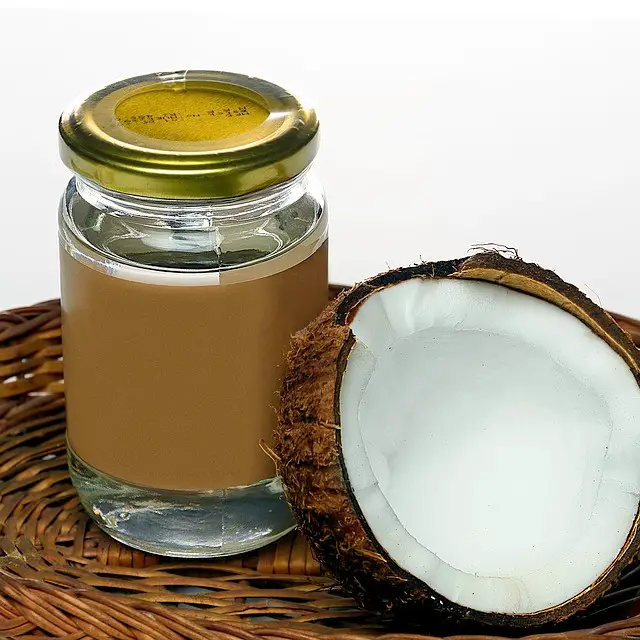
Finally, look for virgin unrefined coconut oil instead of refined coconut oil when it comes to buying products like coconut oil or desiccated flakes. This ensures that the product you’re buying is pure and unrefined while making sure it has all its health benefits intact!
Conclusion
So, Is coconut Keto friendly? The verdict? Coconut is Keto-friendly.
However, it’s worth noting that not all coconut products are Keto-friendly. For example, avoid sweetened coconut products, like coconut milk and coconut cream, as they’re loaded with sugar.
Instead, opt for unsweetened coconut products, like coconut meat and coconut oil, which are high in healthy fats and low in carbs. And as always, speak to your doctor or nutritionist before making any drastic changes to your diet.
